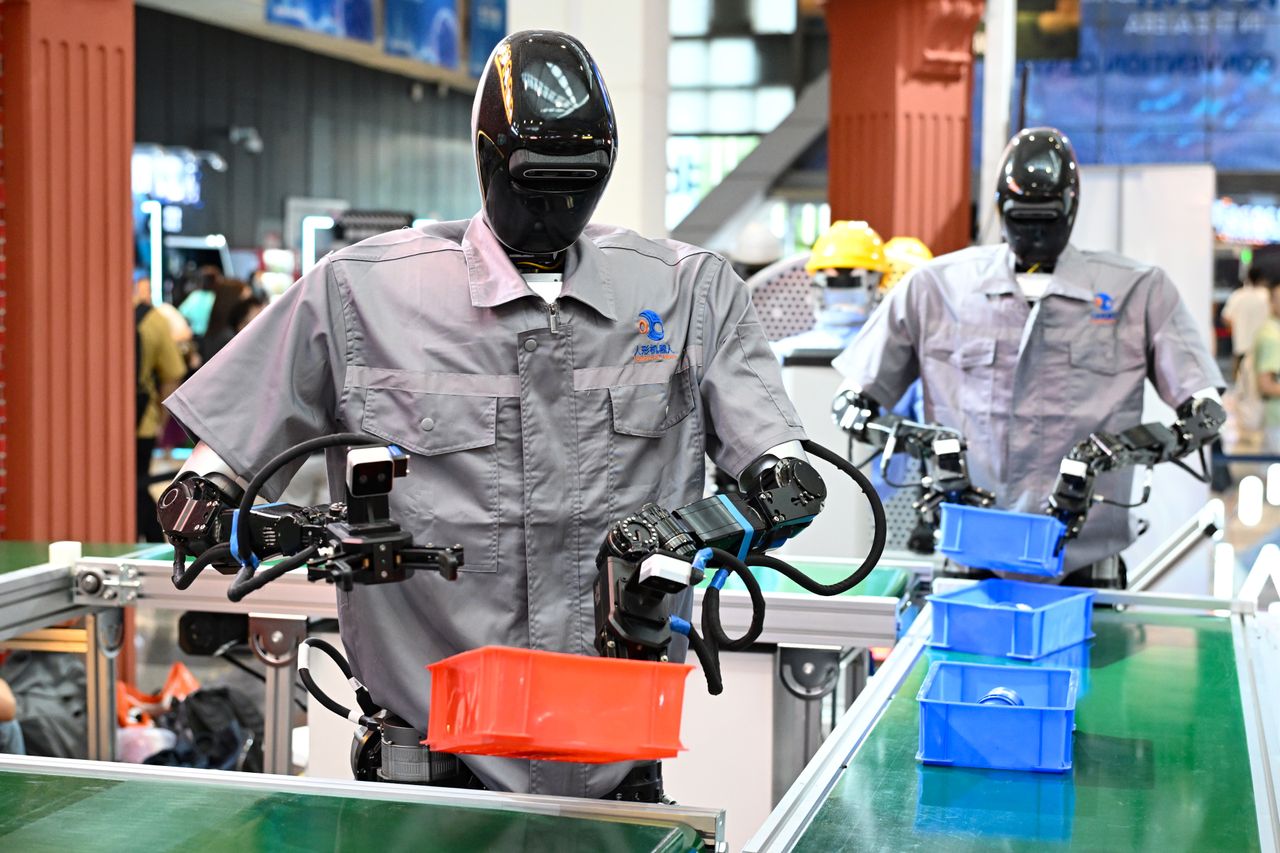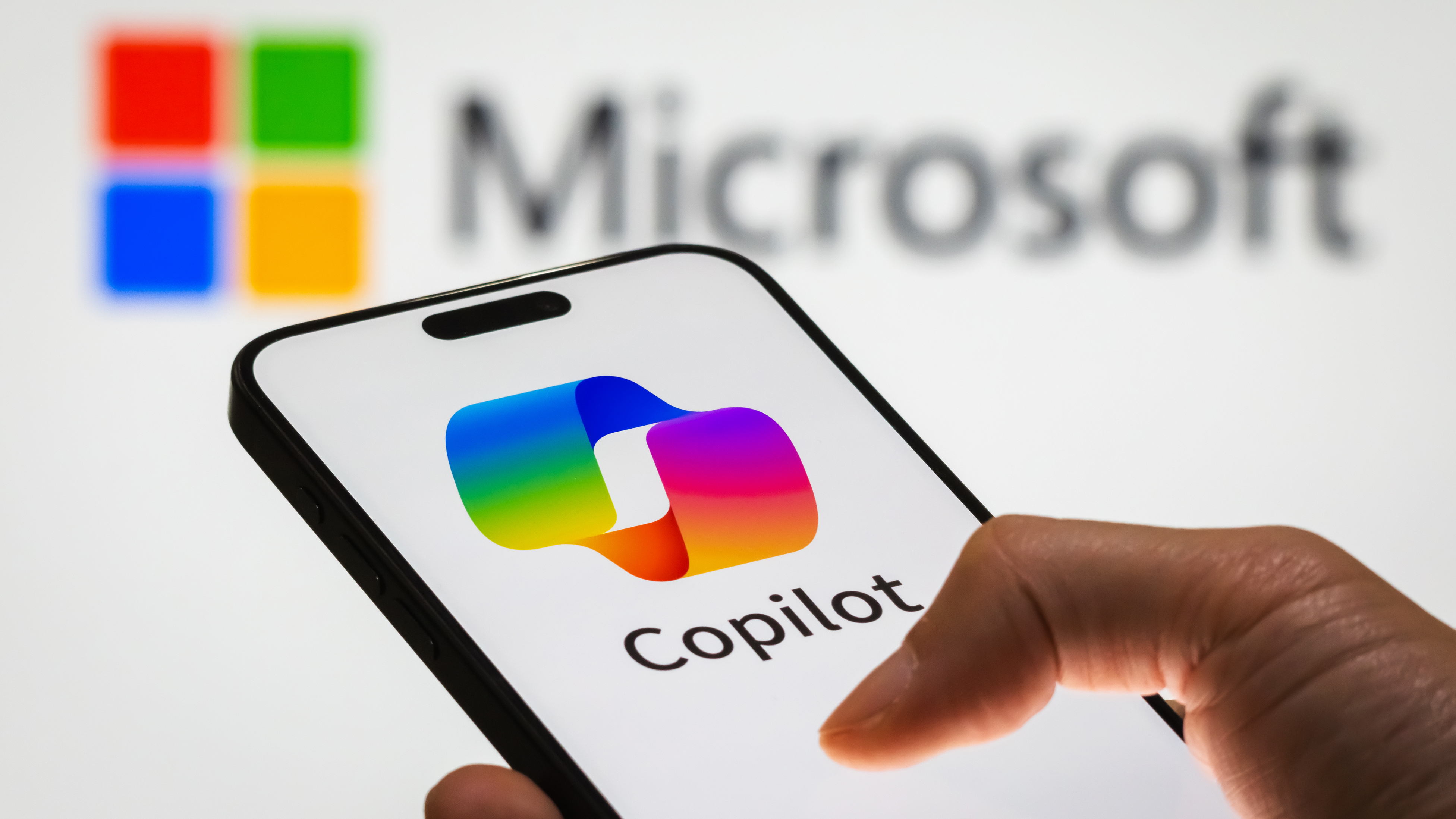
It’s RIP for journalists (🥲), and many other professions, according to Microsoft Research.
A group of data scientists from Microsoft’s research department has recently disclosed in a new paper the types of jobs that are likely to be influenced by AI, considering several variables. This analysis focused on the U.S. job market, but without proper global regulations, it seems these predictions could potentially apply to developed or developing countries worldwide.
Microsoft leads the way in artificial intelligence technology, leveraging its Azure data centers to provide processing power for models such as ChatGPT, DALL-E, and Grok. Their Copilot chatbot is seamlessly integrated into Windows operating systems, while their business-focused solutions within Microsoft 365 are designed to streamline workflows by automating routine tasks.
As AI technology advances, it appears more and more likely that it will not only handle routine tasks efficiently but potentially displace entire professions. On a grand scale, AI could bring about unforeseen impacts on governments and society as a whole. However, this situation may also present hidden opportunities ahead.
As I peruse through this compilation, it appears that Microsoft Research has identified a list of 40 jobs that are potentially susceptible to influence from artificial intelligence, as well as another group of 40 jobs that seem less likely to experience such an impact.
| # | Job Title | Score | Employment |
|---|---|---|---|
| 1 | Interpreters and Translators | 0.49 | 51,560 |
| 2 | Historians | 0.48 | 3,040 |
| 3 | Passenger Attendants | 0.47 | 20,190 |
| 4 | Sales Representatives of Services | 0.46 | 1,142,020 |
| 5 | Writers and Authors | 0.45 | 49,450 |
| 6 | Customer Service Representatives | 0.44 | 2,858,710 |
| 7 | CNC Tool Programmers | 0.44 | 28,030 |
| 8 | Telephone Operators | 0.42 | 4,600 |
| 9 | Ticket Agents and Travel Clerks | 0.41 | 119,270 |
| 10 | Broadcast Announcers and Radio DJs | 0.41 | 25,070 |
| 11 | Brokerage Clerks | 0.41 | 48,060 |
| 12 | Farm and Home Management Educators | 0.41 | 8,110 |
| 13 | Telemarketers | 0.40 | 81,580 |
| 14 | Concierges | 0.40 | 41,020 |
| 15 | Political Scientists | 0.39 | 5,580 |
| 16 | News Analysts, Reporters, Journalists | 0.39 | 45,020 |
| 17 | Mathematicians | 0.39 | 2,220 |
| 18 | Technical Writers | 0.38 | 47,970 |
| 19 | Proofreaders and Copy Markers | 0.38 | 5,490 |
| 20 | Hosts and Hostesses | 0.37 | 425,020 |
| 21 | Editors | 0.37 | 95,700 |
| 22 | Business Teachers, Postsecondary | 0.37 | 82,980 |
| 23 | Public Relations Specialists | 0.36 | 275,550 |
| 24 | Demonstrators and Product Promoters | 0.36 | 50,790 |
| 25 | Advertising Sales Agents | 0.36 | 108,100 |
| 26 | New Accounts Clerks | 0.36 | 41,180 |
| 27 | Statistical Assistants | 0.36 | 7,200 |
| 28 | Counter and Rental Clerks | 0.36 | 390,300 |
| 29 | Data Scientists | 0.36 | 192,710 |
| 30 | Personal Financial Advisors | 0.35 | 272,190 |
| 31 | Archivists | 0.35 | 7,150 |
| 32 | Economics Teachers, Postsecondary | 0.35 | 12,210 |
| 33 | Web Developers | 0.35 | 85,350 |
| 34 | Management Analysts | 0.35 | 838,140 |
| 35 | Geographers | 0.35 | 1,460 |
| 36 | Models | 0.35 | 3,090 |
| 37 | Market Research Analysts | 0.35 | 846,370 |
| 38 | Public Safety Telecommunicators | 0.35 | 97,820 |
| 39 | Switchboard Operators | 0.35 | 43,830 |
| 40 | Library Science Teachers, Postsecondary | 0.34 | 4,220 |
Many jobs in the top 40 “most vulnerable” categories predominantly involve tasks that AI systems like ChatGPT excel at. These roles are primarily focused on work that is largely impersonal and can be easily digitized or automated, making them susceptible to being performed by artificial intelligence. The table was organized based on the risk level, from highest to lowest, according to the findings in the research paper.
It struck me as unusual to find models on that list, but it became clear when I realized I could simply ask AI like ChatGPT or Copilot to create an image of a model performing any action with a simple command. It’s intriguing to think that Microsoft Research believes AI might one day replicate my favorite Xbox exclusives… quite remarkable!
Perhaps I should consider a career in phlebotomy, or become a masseuse?
| # | Job Title | Score | Employment |
|---|---|---|---|
| 1 | Dredge Operators | 0.00 | 340 |
| 2 | Bridge and Lock Tenders | 0.00 | 3,460 |
| 3 | Water Treatment Plant and System Op. | 0.00 | 120,710 |
| 4 | Foundry Mold and Coremakers | 0.00 | 2,700 |
| 5 | Rail-Track Laying and Maintenance Equip. Op. | 0.00 | 4,010 |
| 6 | Pile Driver Operators | 0.00 | 3,010 |
| 7 | Floor Sanders and Finishers | 0.00 | 4,510 |
| 8 | Orderlies | 0.01 | 48,710 |
| 9 | Motorboat Operators | 0.01 | 2,710 |
| 10 | Logging Equipment Operators | 0.01 | 23,720 |
| 11 | Paving, Surfacing, and Tamping Equipment Op. | 0.01 | 43,080 |
| 12 | Maids and Housekeeping Cleaners | 0.01 | 836,230 |
| 13 | Roustabouts, Oil and Gas | 0.01 | 43,880 |
| 14 | Roofers | 0.01 | 135,140 |
| 15 | Gas Compressor and Gas Pumping Station Op. | 0.01 | 4,400 |
| 16 | Helpers–Roofers | 0.01 | 4,540 |
| 17 | Tire Builders | 0.01 | 20,660 |
| 18 | Surgical Assistants | 0.01 | 18,780 |
| 19 | Massage Therapists | 0.01 | 92,650 |
| 20 | Ophthalmic Medical Technicians | 0.01 | 73,390 |
| 21 | Industrial Truck and Tractor Operators | 0.01 | 778,920 |
| 22 | Supervisors of Firefighters | 0.01 | 81,120 |
| 23 | Cement Masons and Concrete Finishers | 0.01 | 203,560 |
| 24 | Dishwashers | 0.02 | 463,940 |
| 25 | Machine Feeders and Offbearers | 0.02 | 44,500 |
| 26 | Packaging and Filling Machine Op. | 0.02 | 371,600 |
| 27 | Medical Equipment Preparers | 0.02 | 66,790 |
| 28 | Highway Maintenance Workers | 0.02 | 150,860 |
| 29 | Helpers–Production Workers | 0.02 | 181,810 |
| 30 | Prosthodontists | 0.02 | 570 |
| 31 | Tire Repairers and Changers | 0.02 | 101,520 |
| 32 | Ship Engineers | 0.03 | 8,860 |
| 33 | Automotive Glass Installers and Repairers | 0.33 | 16,890 |
| 34 | Oral and Maxillofacial Surgeons | 0.33 | 4,160 |
| 35 | Plant and System Operators, All Other | 0.33 | 15,370 |
| 36 | Embalmers | 0.33 | 3,380 |
| 37 | Helpers–Painters, Plasterers, … | 0.33 | 7,700 |
| 38 | Hazardous Materials Removal Workers | 0.33 | 49,960 |
| 39 | Nursing Assistants | 0.33 | 1,351,760 |
| 40 | Phlebotomists | 0.29 | 137,080 |
I arranged these jobs based on a scoring system from Microsoft Research, where a lower score suggests they are less likely to be automated.
Jobs considered less susceptible to automation are those that necessitate a personal, physical interaction, such as massage therapists, construction workers, roofers, engineers, and surgeons. However, it’s important to note that technology is rapidly advancing, and robots are growing more tactile and sophisticated every day. It seems inevitable that AI-designed humanoid robots will eventually take over many of these roles in the future.
It’s all getting a bit Matrix-y, isn’t it?
The AI upheaval will have massive consequences, for better or worse

Just as the Industrial Revolution significantly transformed the world in the 1800s, Artificial Intelligence (AI) is expected to bring about profound changes. While some compare AI’s impact to the way cars displaced the horse-drawn carriage industry, it’s becoming clear that governments are starting to recognize the potential devastation this technology might cause.
As more and more jobs transition to white-collar work, our current economic structure heavily relies on employment. If widespread unemployment, a phenomenon we’ve never experienced before, were to occur due to various factors, it could lead to significant social upheaval. Governments appear to be underprepared for potential AI catastrophes, and this is before we even consider the advancements in artificial general intelligence and self-improving models that are approaching on the horizon.
Artificial Intelligence might exacerbate social inequalities and wealth gaps, leading societies to elect populist leaders who pledge radical transformation but often deliver the status quo instead. Society may reach its tolerance limit for such deception, and AI could serve as the catalyst pushing it towards a tipping point.
Instead, consider these advantages: Artificial Intelligence (AI) might expedite discoveries in diseases and cancer, as it can process data, understand complex concepts, and run experiments at a pace that far surpasses human teams. Furthermore, AI could potentially devise economic strategies to address the impending unemployment issue, such as a distributed universal basic income system. This concept is suggested to liberate humanity from the burdens of traditional work, in theory.
I usually lean towards a more skeptical outlook when considering the future, but much like the Industrial Revolution, it brought about significant upheaval. However, it’s clear that it propelled society forward as a whole. It gave birth to entirely new industries and opportunities, and it significantly increased global life expectancies, largely due to advancements in agriculture, medicine, and other areas.
It’s possible that AI will generate new job opportunities equal to those it replaces. Yet, there remains uncertainty about whether it might entirely replace human labor. Could our future involve harnessing limitless energy for space exploration? Or is it more likely we’ll find ourselves in a reality like The Matrix or Terminator, controlled by advanced machines?
I guess we won’t have to wait too long to find out. What do you think?
Read More
- Best Controller Settings for ARC Raiders
- DCU Nightwing Contender Addresses Casting Rumors & Reveals His Other Dream DC Role [Exclusive]
- Ashes of Creation Rogue Guide for Beginners
- Stephen Colbert Jokes This Could Be Next Job After Late Show Canceled
- Is XRP ETF the New Stock Market Rockstar? Find Out Why Everyone’s Obsessed!
- 7 Home Alone Moments That Still Make No Sense (And #2 Is a Plot Hole)
- 10 X-Men Batman Could Beat (Ranked By How Hard It’d Be)
- 10 Most Brutal Acts Of Revenge In Marvel Comics History
- Inside Prince Andrew and Ex-Wife Sarah Ferguson’s Unusual Relationship
- ARC Raiders Into the Fray Quest Guide | How to Defeat the Leaper
2025-07-29 14:13